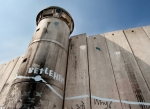 Texts: Isaiah 60:1-6; Matthew 2:1-12
Texts: Isaiah 60:1-6; Matthew 2:1-12
This morning we remember the story of the Magi.
I was born on El Dia de los Reyes–Three Kings Day (January 6)–which is a big deal in Mexico. In Latin American culture, the Magi play a more prominent role in cultural celebrations. It is los Reyes Magos, not Santa Claus, who bring gifts to children (although globalization is blurring these cultural boundaries).
In the church year, January 6 is also Epiphany—a feast day that celebrates the revelation of God the Son as human being in Jesus Christ. Western Christians remember the visitation of the Magi to the baby Jesus as a story about Jesus’ physical manifestation to the Gentiles.
The story of the Magi is also a story about cultural and religious outsiders finding a place in God’s story. It is a border crossing story.
We should not be surprised that Matthew weaves the story of the Magi into his account of the birth of Jesus. From the beginning, Matthew frames the gospel as a story of inclusion. We see this theme in the genealogy.
The genealogy clearly places Jesus and the Gospel within Israel’s history going back to Abraham. But the genealogy also points to a significant role played by Gentiles, women (Luke’s genealogy does not include women–3:23-38) and those left behind in Judah during the time when the elite were taken into exile in Babylon.
Later in Matthew’s gospel, Jesus will say that he “was sent only to the lost sheep of the house of Israel” (Matt 15:24). Even so, there will be mercy and a few crumbs from the table for a Canaanite woman whose daughter is not well. Jesus will heal the son of a Roman centurion (Matt 8:5-13).
So it is important to see the story of the Magi together with the genealogy and the other stories that deal with outsiders as a part of the message in Matthew’s gospel. For the Jewish-Christian community Matthew is written to in the late 1st century—the message is that Gentiles are an integral part of the reign of God.
Our reading from the prophet Isaiah envisions Gentiles being drawn to the light…sons coming from far away and daughters being carried on their nurses’ arms. The story of the Magi embodies this vision.
It is a story of pagan astrologers who look to the stars to tell the future. In those days astrologers were widely respected in the Greco-Roman world and everyone agreed that the best astrologers lived in the East. So it is not surprising that the message that comes to the Magi is delivered not by an angel, but by the night sky. As they read the constellations and planets, they understand that a child has been born king of the Jews. And so they set out on a pilgrimage.
When the Magi arrive in Jerusalem with their entourage they are noticed. This happens when you cross borders. Perhaps it was their skin color. Perhaps it was their strange clothing. Perhaps it was their accent that gave them away. Perhaps it was the size of their caravan.
What we know is that they begin to ask around about a king who has been born. Perhaps they were naive about the politics of Judea. Maybe they had not heard about the reputation of King Herod. Although the client king of Judea helped to build the Temple in Jerusalem, he was also ruthless. He murdered his own family members. Thus the saying: Better to be one of Herod’s pigs than his son.
When King Herod hears the news about why the Magi are in town—he is frightened—and all of Jerusalem with him.
In his recent book, The United States of Fear, Tom Engelhardt provides an analysis of how we, as a country, have paid an enormous price in order to maintain an unsustainable dominance of the world. He says that a nation that lives in fear is no longer an empire: it incrementally erodes into an authoritarian state of diminishing power.
Fear based politics usually leads to scapegoating and violence. We see this again and again in the biblical story and beyond. We see this in the  Exodus story when, in fear, Pharaoh calls upon the midwives to kill the Hebrew boys at birth (Ex. 1:16). We see this in the birth account of Matthew’s gospel, where Herod’s fear lead’s to the slaughter of innocents in and around Bethlehem (Matt 2:16).
Exodus story when, in fear, Pharaoh calls upon the midwives to kill the Hebrew boys at birth (Ex. 1:16). We see this in the birth account of Matthew’s gospel, where Herod’s fear lead’s to the slaughter of innocents in and around Bethlehem (Matt 2:16).
But that is not our text today. Our reading today names the fear of Herod which leads him to call together all the chief priests and scribes to see what the tradition says regarding the birthplace of the Messiah. A reading is offered from the prophet Micah.
Herod is not yearning for the fulfillment of this prophecy. He is wanting to hold onto power. And so he calls the Magi in for a secret meeting. He spins it as wanting to learn where the child is so that he also can honor him.
The Magi have not crossed borders to be caught up in a political chess match. And so when they have heard the king, they set out and the star leads them to the place where the child was. Overwhelmed with joy, they enter the house and kneel before Jesus. They open their treasure chests and offer him gifts. Then they go back to their country by another road.
What does this story mean for our understanding of the gospel?
This fall I had the opportunity to meet Arshad. We met for lunch at King of Prussia and talked for about an hour and a half before he had to go back to work.
As we shared stories, I learned that Arshad had come to the United States from India to go to college in Iowa. After that, he went on to graduate school at the University of Pennsylvania and now works for a pharmaceutical company outside of Philadelphia. We talked about our families—Arshad is married and has three children about the same ages as my children.
As we shared stories, we talked about our faith. Arshad, a Muslim, serves as a lay leader at the Islamic Society of Greater Valley Forge. I asked Arshad what it has been like to be a Muslim in this country since 9/11. Arshad said it has not been easy. He talked about the time when there was a controversy over plans to build a mosque near ground zero. He talked about the pastor in Florida who wanted to burn the Koran.
He also talked about a Christian congregation on the mainline who reached out to his community around the anniversary of 9/11 this last year attempting to build bridges of understanding and peace. He talked about good relationships with the Jewish synagogue and Christian congregation nearby.
As I hear the story of the Magi, I think about my encounter with Arshad. I think about what it means for us to trace our faith stories back to Abraham. I think about what it means to encounter each other across religious and cultural differences. I think about our common human story.
Christian theologian, Miroslav Volf, has been thinking about what it means for Christians and Muslims to live together in peace. Volf observes that Muslims and Christians have worked together to depose dictators and assert the power of the people. We’ve seen it happen on the Tahrir Square in Cairo during the 2011 revolution in Egypt, with devout Muslims and Coptic Christians protesting side by side.
Volf also notes the perception that Islam is a religion of terrorists. And so it is with deep concern and commitment to the biblical story that Volf is asking questions like: “Do Muslims and Christians have a common God?” and “Can we live together without bloodshed?”
These are important questions to ask as we reflect on the story of the Magi. It is a story that contrasts the fear of Herod with the peaceable wisdom and reverence of outsiders to the story of Israel.
It is a story which calls us to embrace the possibility of room for others in God’s story who don’t look like us or tell the same stories about God. Yet they are being drawn to the light. The story of the Magi is a story about being led by stars. It is a story about crossing borders, honoring Jesus, offering gifts and returning home.
 It is a story that invites us to consider how God comes to us whether we are Hebrews or Gentiles, rich or poor, insiders or outsiders. We may not be able to comprehend where the Magi fit into our story, but this morning we remember their story comes to us as part of the gospel story.
It is a story that invites us to consider how God comes to us whether we are Hebrews or Gentiles, rich or poor, insiders or outsiders. We may not be able to comprehend where the Magi fit into our story, but this morning we remember their story comes to us as part of the gospel story.
As we begin a new year…we hear the word that God has come to us…and the nations are being drawn to the light of Christ.
For darkness shall cover the earth, and thick darkness the peoples; but the LORD will arise upon you, and his glory will appear over you.
Lift up your eyes and look around.